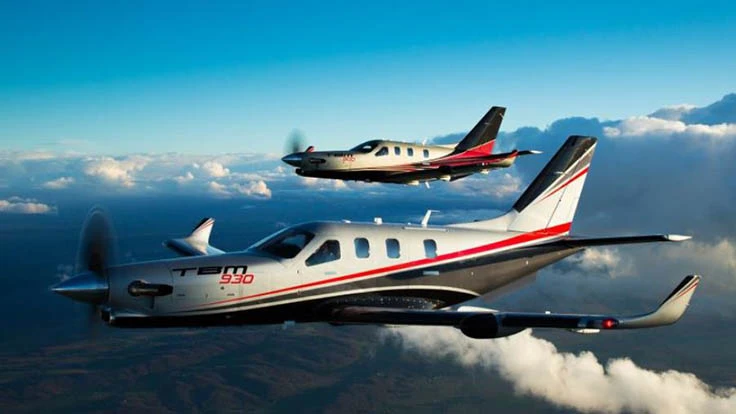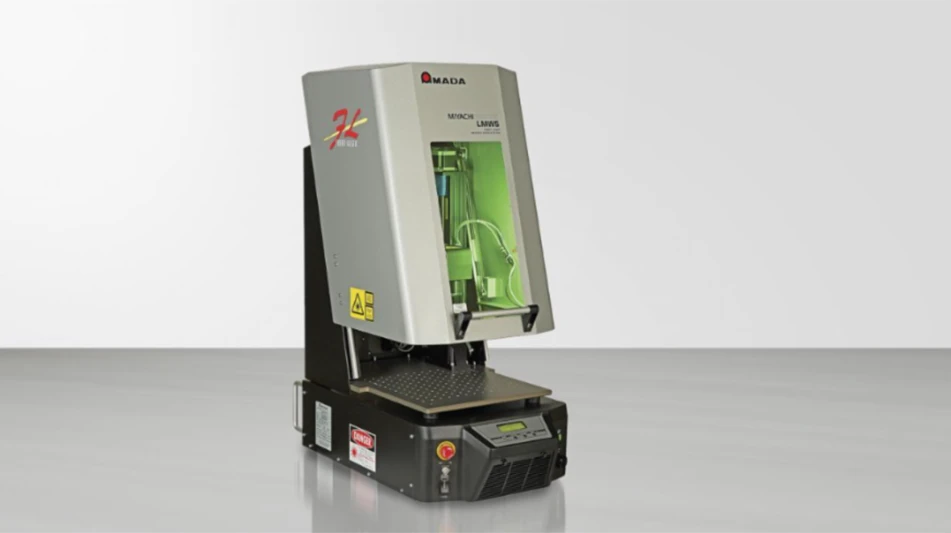
Tarbes, France – Daher has unveiled the expanded range of its TBM very fast turboprop aircraft family, which now consists of the TBM 900 and the TBM 930 version – each of which retain the performance and technical features that have made the TBM 900 a business aviation success, with more than 110 sold since its launch two years ago.
Daher has introduced the e-copilot function on model year 2016 aircraft for both the TBM 900 and TBM 930, incorporating the following systems and functionality for reduced pilot workload:
- A sensor and angle of attack calculator (AOA), providing angle of attack information on the primary flight display
- Electronic stabilization and protection systems (ESP) and under speed protection (USP), which are connected to the AOA computer. These electronic monitoring and stability augmentation systems assist the pilot in maintaining the aircraft in a stable flight condition when flight parameters are exceeded
- An emergency descent mode (EDM) in the autopilot, which places the aircraft in automatic descent to a safe altitude of 15,000ft. in the event of cabin depressurization and lack of pilot response
- New voice alerts – providing notification on stall, overspeed, landing gear status and oxygen mask use – which replace aural sounds for better warning identification
With the TBM product line expansion, distinguishing differences between the TBM 900 and TBM 930 are concentrated on their primary avionics.
Daher’s 2016 TBM 900 retains the liquid crystal displays with Garmin’s G1000 avionics system – incorporating a pair of 10" screens and a multifunction display sized at 15", along with a physical keyboard for navigation and communication functions.
New this year is the TBM 900’s Bluetooth FS 210 connection system, which enables the use of a tablet or smart phone to prepare maps and flight plans.
Introducing the TBM 930 as the latest step in Daher’s very fast turboprop aircraft family evolution, this version integrates Garmin’s G3000 avionics suite – the first touchscreen-controlled glass flight deck designed for light turbine aircraft. Its cockpit instrument’s panel three wide-format WXGA displays can operate in a splitscreen mode, enabling maps and flight plans to remain on the screen side-by-side with primary, traffic and weather information.
A new glass touchscreen controller serves as the pilot’s primary point of entry for the G3000 system, displaying communication, and navigation controls. In addition, the G3000 avionics suite’s high resolution displays enhance the presentation of simulated 3-D perspective topography for Garmin’s SVT Synthetic Vision Technology.
Daher has developed a new interior for the TBM 930 with redesigned seating and headrests, along with a new choice of wood or carbon finishes. For an additional touch of style, polished metal is used for handles, door sills and steps.
Didier Kayat, CEO of the Daher group parent company, said more than 50 new TBM aircraft in the TBM 900 and TBM 930 versions are expected to be delivered in 2016. “The availability of these two aircraft underscores Daher’s sustained ambition in business aviation, and is a message to our customers that we continue to invest to expand and further improve our TBM family,” he stated.
Listening to customers has guided the TBM’s evolution, according to Nicolas Chabbert, the Senior Vice President of Daher’s Airplane Business Unit and CEO of SOCATA North America. "With enhanced resources provided by the Daher group for technical studies, design and production, we’ve taken a new step forward with the current TBM family while also positioning ourselves for future developments,” he concluded.
Daher has booked a total of 140 orders for the TBM 900 since this version’s launch in 2014, with 110 aircraft delivered as March 31, 2016. The majority of the TBM 900s were purchased by customers in the U.S. and Canada (78%). South America represents 10% of the sales (primarily in Brazil), with Europe representing 8% and Asia-Pacific the remaining 4%.
Source: Daher
Get curated news on YOUR industry.
Enter your email to receive our newsletters.Loading...
Latest from Aerospace Manufacturing and Design
- GE Aerospace secures Air Force engine contract
- Thomson Industries' online sizing and selection tool
- #53 - Manufacturing Matters - 2024 Leaders in Manufacturing Roundtable
- Join us for insights on one of the hottest topics in manufacturing!
- You can still register for March’s Manufacturing Lunch + Learn!
- Ohio creates Youngstown Innovation Hub for Aerospace and Defense
- Tormach’s Chip Conveyor Kit for the 1500MX CNC Mill
- How to Reduce First Article Inspection Creation Time by 70% to 90% with DISCUS Software





